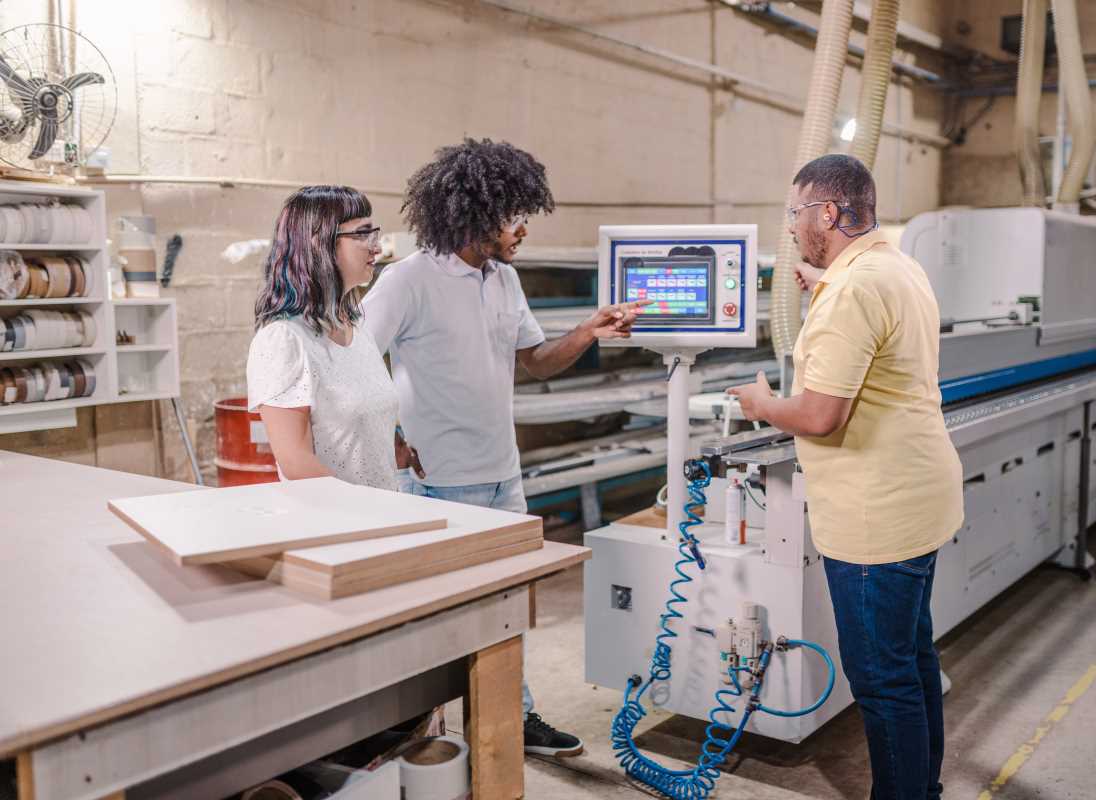The job market is a bit like a fashion show—what's in style is always changing. The skills that got people hired ten years ago might not be enough to land a great job today. With technology advancing at lightning speed and the world becoming more connected, employers are looking for a new and improved set of talents. Whether you're just starting to think about your future career or you're already in the workforce, understanding what employers value most is like having a secret map to success. By focusing on developing these in-demand skills, you can make yourself a standout candidate who is ready for any challenge the modern workplace throws your way.
1. Adaptability and Flexibility
The world is changing faster than ever, and the workplace is changing with it. New technologies are introduced, company goals shift, and unexpected challenges arise. Employers need people who can roll with the punches. Adaptability is the ability to adjust to new conditions, while flexibility is the willingness to do so. This means being open to learning a new software program, taking on a task outside your job description, or pivoting your approach to a project when the original plan isn't working. It's about having a "can-do" attitude instead of saying, "That's not my job."
How to develop it: Step out of your comfort zone. Join a new club, try a hobby you know nothing about, or volunteer for a task you've never done before. When you face a setback, focus on finding a solution rather than getting frustrated. The more you practice adjusting to small changes, the better you'll be at handling big ones.
2. Technology and Digital Literacy
In 2025, saying you're "bad with computers" is no longer an option. Nearly every job requires some level of digital skill. This doesn't just mean knowing how to use Microsoft Word or send an email. Digital literacy is about being comfortable with a range of digital tools, from communication platforms like Slack and Microsoft Teams to project management software like Asana or Trello. It also includes understanding the basics of data security to protect sensitive information and being able to find and evaluate information online effectively.
How to develop it: Play with technology. Explore the features of your smartphone you've never used. Watch YouTube tutorials to learn the basics of a popular software program. Many online learning platforms offer free introductory courses on digital marketing, data analysis, or even coding.
3. Critical Thinking and Problem-Solving
Employers don't want robots who can only follow instructions; they want thinkers who can solve problems. Critical thinking is the ability to analyze information objectively and make a reasoned judgment. It’s about looking at a problem from multiple angles, identifying the pros and cons of different solutions, and then choosing the best course of action. This skill is essential for everything from improving a company's process to handling a customer complaint effectively.
How to develop it: Become a questioner. When you read a news article, ask yourself: What is the author's main point? What evidence do they use? Is there another side to the story? Engage in puzzles, Sudoku, or strategy games that force you to think ahead and plan your moves.
4. Communication
The ability to communicate clearly and effectively is a timeless skill that is more important than ever. This includes written communication (crafting professional emails and clear reports), verbal communication (presenting your ideas confidently in meetings), and listening. Good communication also means being able to tailor your message to your audience. How you explain a project to your boss might be very different from how you explain it to a client.
How to develop it: Practice. Join a debate club or a public speaking group like Toastmasters. Before sending an important email, read it out loud to check for clarity and tone. Pay attention to how you listen in conversations—are you really hearing what the other person is saying, or just waiting for your turn to talk?
5. Collaboration and Teamwork
Few great things are accomplished alone. Collaboration is the skill of working with others to achieve a common goal. This involves sharing ideas, giving and receiving constructive feedback, and being reliable and accountable to your teammates. In an increasingly global and remote work environment, being able to collaborate effectively with people you might not even be in the same room with is a critical skill.
How to develop it: Get involved in group projects at school or in your community. When you're on a team, take on different roles. Sometimes be a leader, and other times be a supportive team member. Learn to appreciate the different strengths that each person brings to the table.
6. Creativity and Innovation
In a world where routine tasks can be automated, the uniquely human skills of creativity and innovation are highly prized. Creativity isn't just for artists and musicians; it's about thinking of new ways to do things. It could be a more efficient way to organize a filing system, a novel marketing campaign, or a new feature for a product. Employers want people who can think outside the box and contribute fresh ideas.
How to develop it: Feed your curiosity. Read books and watch documentaries on a wide range of subjects. Visit a museum. Learn a new skill. The more diverse your knowledge and experiences, the more creative connections your brain can make.
7. Data Literacy
We are swimming in a sea of data. Companies collect information on everything from customer clicks to supply chain efficiency. Data literacy is the ability to read, understand, analyze, and communicate with data. You don't have to be a data scientist, but you should be able to look at a chart or a spreadsheet and understand what it's telling you. This skill helps you make decisions based on evidence, not just on a gut feeling.
How to develop it: Start with the data in your own life. Track your spending, your screen time, or your fitness goals. Use a simple spreadsheet program like Google Sheets or Excel to create charts and look for patterns. Take a free online course on the fundamentals of data analysis.
8. Emotional Intelligence (EQ)
Emotional intelligence is the ability to understand and manage your own emotions, as well as recognize and influence the emotions of others. People with high EQ are good at navigating social situations, resolving conflicts, and empathizing with their colleagues. They make great leaders and teammates because they can build strong, positive relationships.
How to develop it: Practice self-awareness. Pay attention to how you feel throughout the day and what triggers certain emotions. When you're in a conversation, practice empathy by trying to see the situation from the other person's perspective. Ask for feedback from people you trust on how you come across to others.
9. Leadership
Leadership isn't just for managers. It's a skill that anyone can demonstrate, regardless of their title. Leadership is about taking ownership of your work, motivating others, and helping your team move toward a goal. An employee who takes the initiative to organize a team-building activity or who mentors a new hire is showing leadership. Employers love to see this kind of initiative.
How to develop it: Raise your hand for more responsibility. Volunteer to lead a small project or organize a study group. Practice making decisions and taking responsibility for the outcomes, both good and bad. Observe leaders you admire and take note of what makes them effective.
10. Lifelong Learning Mindset
Perhaps the most important skill of all is the desire to keep learning. The skills that are valuable today might not be in five years. A lifelong learning mindset is the understanding that education and skill development are an ongoing process. Employers want to hire people who are curious, proactive about their own growth, and eager to learn new things.
How to develop it: Stay curious. Dedicate a small amount of time each week to learning something new, whether it's by reading an article, listening to a podcast, or watching a tutorial. Set a personal goal to earn a new certification or master a new skill every year. See learning as an exciting opportunity, not a chore.
 (Image via
(Image via





